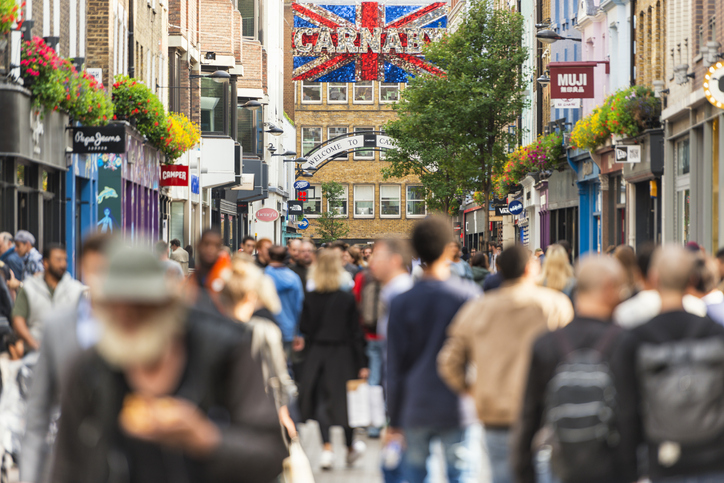The Government is under pressure to reinstate tax-free shopping for international visitors in light of an increase in tourism.
Business chiefs and major companies, including Burberry and Fortnum and Mason, have called on chancellor Jeremy Hunt to bring back the VAT rebate.
A study carried out by the Centre for Economics and Business Research (CEBR) found that the economy would be £10bn better off if the VAT refunds were reinstated. On top of that the Treasury could benefit from an annual £2bn boost.
Spending eligible for tax-free shopping was at £6.6m last year, rising to £7.7bn this year. Assuming that all visitors claimed the rebates, about £1.1m of this would have been returned to customers last year and £1.3m would be returned to them this year.
Per visitor, VAT refunds would shrink the cost of a UK trip by 4.2 per cent, according to CEBR calculations. This cost reduction would have attracted an estimated 1.7m extra visitors last year and two million this year.
A previous scheme allowed visitors from non-EU countries to recover VAT on purchases bought during their trip, but this was canned after Brexit.
This research, which was jointly commissioned by the Daily Mail and Sir Rocco Forte, represents a best-case scenario where every tourist claims a rebate on eligible purchases. Forte has campaigned for the return of tax-free shopping.
The Treasury has said that VAT-free shopping doesn’t directly benefit British people. Rather, it allows international tourists to reclaim the tax on their way home. A spokesman said: “The scheme could cost British taxpayers around £2bn a year at a time when we’ve already had to take difficult decisions to get debt falling and fewer than one in ten non-EU visitors normally use the scheme.”
The CEBR found that the benefits would outweigh the costs. “The value of lost sales tax is more than offset by additional receipts from other taxes. For every £1 lost in sales tax revenue as a result of tax-free shopping, the exchequer is expected to gain £1.56 in other taxes.”
Last week, the BusinessLDN group, with members including Primark, Starbucks and several London airports, said that the only winners of the “tourist tax”’ had been cities such as Paris, Madrid and Milan.
The not-for-profit group presented the Treasury with an analysis based on a report by Oxford Economics, which showed that restoring the policy could create an additional 13,400 jobs.
Read more
Hunt scraps VAT-free shopping and presses on with IR35 reforms – Chancellor Jeremy Hunt reverses nearly all of Kwasi Kwarteng’s tax cuts, loading billions onto bills of small business owners
What is the VAT threshold? – At what point does your small business have to start paying VAT? Should you voluntarily pay VAT? And what are legitimate ways to stay under the VAT threshold?
Sole traders increasingly avoid charging VAT – Tens of thousands of small businesses deliberately stay small to avoid charging VAT, which means you have to hike prices if you wander over the £85,000 threshold





